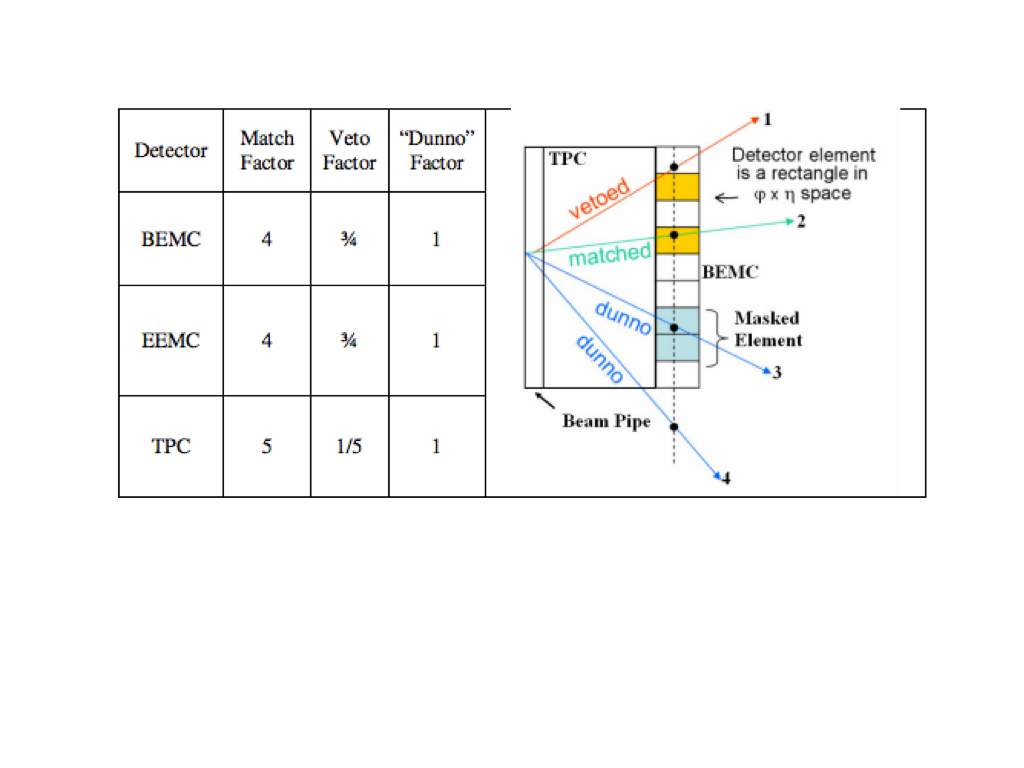- devika's home page
- Posts
- 2018
- May (1)
- 2017
- 2016
- December (1)
- November (1)
- October (1)
- September (4)
- June (2)
- May (2)
- April (5)
- March (4)
- January (3)
- 2015
- 2014
- November (4)
- September (3)
- August (4)
- July (1)
- June (7)
- May (1)
- April (2)
- March (1)
- February (4)
- January (7)
- 2013
- My blog
- Post new blog entry
- All blogs
PPV_Vertex_Finder
Introduction:
PPV- Pile-up Proof Vertex Finder
Determine the primary vertex location along the beam axis for low multiplicity events (e.g., W -> e+/- decays) which are embedded in pile-up that is two orders of magnitude larger.
All tracks reconstructed in the TPC are denoted as global tracks in the STAR frame-work. PPV uses all the global tracks to reconstruct all possible vertices in the event.
Two criteria used to separate pile-up tracks from primary tracks:
a) each track extrapolated to the EMC towers to determine whether it matches with an cluster energy which track pointed to.
b) Checked if TPC hits from both sides of the TPC central membrane were used in the track reconstruction.
PPV finds the position of the primary vertex along the z-axis (i.e., the beam direction) from the center of the STAR interaction region, which is referred to as the zvertex of the
collision. This zvertex is the weighted mean of all global tracks approaching within 3 cm of the beamline, with track weights depending on the number and distribution of TPC hits
used to reconstruct the track, and a weighted multiplier based on the calorimeter and central membrane matching described above.
Conditions for a valid primary vertex,
1) atleast two high quality, matched track candidates originating from the same zvertex location,
2) single track with pT > 10 GeV/c matched to an energy deposit in a calorimeter tower.
************************************************************************************
TPC electron drift time + electronic integration time: 40 us = 25 KHz (100% dead)
p+p collision rate: ~1 MHz (200 GeV) ~ 4 MHz (500 GeV) (160 collisions per TPC event)
1D with beam line constrain, use matches to fast detectors (BEMC, EEMC, BTOF)
Select “good” global tracks: pT>0.2 GeV/c, nHits/nPoss>0.7, DCAxy<3cm
Weight tracks according to matching conditions to fast detectors, TPC central membrane
Use cumulative likelihood function scan along z direction with windows of 3cm widths
Valid primary vertex requires 2 matched tracks
Ranking based on likelihood (based on track qualities) and matches to fast detectors

Proposed changes:
1) Adding BTOF:
Add BTOF match/veto in PPV – similar as BEMC
- particularly benefit the vertexing efficiency for pp minibias events
more details:
https://drupal.star.bnl.gov/STAR/blog/yyang/2012/nov/28/mc-study-ppv-with-btof-run-12-geometry
2) Change of track cuts:
DCAxy Max: 3 cm -> 2 cm
nFit/nPoss ratio Min: 0.70 -> 0.51
http://people.physics.tamu.edu/changzl/directory/STAR/01_2013_PPV/ppvstudy.html
Sources:
Talk by Xin Dong about STAR VERTEX FINDERS for the SCM
******************
- devika's blog
- Login or register to post comments
